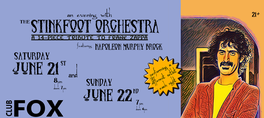Join us on Monday, April 17th at 7pm PT when Yuri Herrera is joined by Román Luján to celebrate his latest work, Ten Planets (trans. Lisa Dillman), at 9th Ave!
Presented in partnership with the Center for the Art of Translation
This event was previously scheduled for Thursday, April 13th
Masks Encouraged for In-Person Attendance
Or watch online/Livestream link available soon
Praise for Ten Planets
"Outlandish and heartbreaking." --The New York Times
"Bracingly unbookish . . . The after-effect is more like that of a video game or Marvel comic." --The Guardian
"Poetic and defamiliarizing . . . In this legend-rich book, to immigrate is to enter forever the land of the shades." --Sam Sacks, The Wall Street Journal
About Ten Planets
A collection of fanciful, philosophical science fictions by "one of Mexico's finest novelists" (Vulture).
The characters that populate Yuri Herrera's surprising new story collection inhabit imagined futures that reveal the strangeness and instability of the present. Drawing on science fiction, noir, and the philosophical parables of Jorge Luis Borges's Fictions and Italo Calvino's Cosmicomics, these very short stories are an inspired extension of this significant writer's work.
In Ten Planets, objects can be sentient and might rebel against the unhappy human family to which they are attached. A detective of sorts finds clues to buried secrets by studying the noses of his clients, which he insists are covert maps. A meager bacterium in a human intestine gains consciousness when a psychotropic drug is ingested. Monsters and aliens abound, but in the fiction of Yuri Herrera, knowing who is the monster and who the alien is a tricky proposition.
In Ten Planets, Herrera's consistent themes--the mutability of borders, the wounds and legacy of colonial violence, and a deep love of storytelling in all its forms--are explored with evident brilliance and delight.
About Yuri Herrera
Born in Actopan, Mexico, Yuri Herrera is the author of three novels, including Signs Preceding the End of the World, which was one of the Guardian's "100 Best Books of the 21st Century" and won the Best Translated Book Award. He teaches at Tulane University in New Orleans.
About Lisa Dillman
Lisa Dillman lives in Decatur, Georgia, where she translates Spanish-language fiction and teaches at Emory University. Her recent translations include National Book Award finalist The Bitch by Pilar Quintana and A Silent Fury by Yuri Herrera.
About the Center for the Art of Translation
The Center for the Art of Translation, a 501(c)(3) nonprofit organization based in San Francisco, was founded in 2000 by Olivia Sears, an Italian translator and editor who serves as the Center's board president. In 1993, prior to forming the Center, Sears helped to establish the literary translation journal Two Lines: World Writing in Translation at a time when there were very few venues for translated literature in English, and those handful rarely paid much attention to the translator beyond a brief acknowledgment. Two Lines set out to challenge that trend--to make international literature more accessible to English-speaking audiences, to champion the unsung work of translators, and to create a forum for translators to discuss their craft. In this way, Two Lines serves as the Center's cornerstone, and the journal's spirit radiates through all of the Center's work today.
show less
Presented in partnership with the Center for the Art of Translation
This event was previously scheduled for Thursday, April 13th
Masks Encouraged for In-Person Attendance
Or watch online/Livestream link available soon
Praise for Ten Planets
"Outlandish and heartbreaking." --The New York Times
"Bracingly unbookish . . . The after-effect is more like that of a video game or Marvel comic." --The Guardian
"Poetic and defamiliarizing . . . In this legend-rich book, to immigrate is to enter forever the land of the shades." --Sam Sacks, The Wall Street Journal
About Ten Planets
A collection of fanciful, philosophical science fictions by "one of Mexico's finest novelists" (Vulture).
The characters that populate Yuri Herrera's surprising new story collection inhabit imagined futures that reveal the strangeness and instability of the present. Drawing on science fiction, noir, and the philosophical parables of Jorge Luis Borges's Fictions and Italo Calvino's Cosmicomics, these very short stories are an inspired extension of this significant writer's work.
In Ten Planets, objects can be sentient and might rebel against the unhappy human family to which they are attached. A detective of sorts finds clues to buried secrets by studying the noses of his clients, which he insists are covert maps. A meager bacterium in a human intestine gains consciousness when a psychotropic drug is ingested. Monsters and aliens abound, but in the fiction of Yuri Herrera, knowing who is the monster and who the alien is a tricky proposition.
In Ten Planets, Herrera's consistent themes--the mutability of borders, the wounds and legacy of colonial violence, and a deep love of storytelling in all its forms--are explored with evident brilliance and delight.
About Yuri Herrera
Born in Actopan, Mexico, Yuri Herrera is the author of three novels, including Signs Preceding the End of the World, which was one of the Guardian's "100 Best Books of the 21st Century" and won the Best Translated Book Award. He teaches at Tulane University in New Orleans.
About Lisa Dillman
Lisa Dillman lives in Decatur, Georgia, where she translates Spanish-language fiction and teaches at Emory University. Her recent translations include National Book Award finalist The Bitch by Pilar Quintana and A Silent Fury by Yuri Herrera.
About the Center for the Art of Translation
The Center for the Art of Translation, a 501(c)(3) nonprofit organization based in San Francisco, was founded in 2000 by Olivia Sears, an Italian translator and editor who serves as the Center's board president. In 1993, prior to forming the Center, Sears helped to establish the literary translation journal Two Lines: World Writing in Translation at a time when there were very few venues for translated literature in English, and those handful rarely paid much attention to the translator beyond a brief acknowledgment. Two Lines set out to challenge that trend--to make international literature more accessible to English-speaking audiences, to champion the unsung work of translators, and to create a forum for translators to discuss their craft. In this way, Two Lines serves as the Center's cornerstone, and the journal's spirit radiates through all of the Center's work today.
Join us on Monday, April 17th at 7pm PT when Yuri Herrera is joined by Román Luján to celebrate his latest work, Ten Planets (trans. Lisa Dillman), at 9th Ave!
Presented in partnership with the Center for the Art of Translation
This event was previously scheduled for Thursday, April 13th
Masks Encouraged for In-Person Attendance
Or watch online/Livestream link available soon
Praise for Ten Planets
"Outlandish and heartbreaking." --The New York Times
"Bracingly unbookish . . . The after-effect is more like that of a video game or Marvel comic." --The Guardian
"Poetic and defamiliarizing . . . In this legend-rich book, to immigrate is to enter forever the land of the shades." --Sam Sacks, The Wall Street Journal
About Ten Planets
A collection of fanciful, philosophical science fictions by "one of Mexico's finest novelists" (Vulture).
The characters that populate Yuri Herrera's surprising new story collection inhabit imagined futures that reveal the strangeness and instability of the present. Drawing on science fiction, noir, and the philosophical parables of Jorge Luis Borges's Fictions and Italo Calvino's Cosmicomics, these very short stories are an inspired extension of this significant writer's work.
In Ten Planets, objects can be sentient and might rebel against the unhappy human family to which they are attached. A detective of sorts finds clues to buried secrets by studying the noses of his clients, which he insists are covert maps. A meager bacterium in a human intestine gains consciousness when a psychotropic drug is ingested. Monsters and aliens abound, but in the fiction of Yuri Herrera, knowing who is the monster and who the alien is a tricky proposition.
In Ten Planets, Herrera's consistent themes--the mutability of borders, the wounds and legacy of colonial violence, and a deep love of storytelling in all its forms--are explored with evident brilliance and delight.
About Yuri Herrera
Born in Actopan, Mexico, Yuri Herrera is the author of three novels, including Signs Preceding the End of the World, which was one of the Guardian's "100 Best Books of the 21st Century" and won the Best Translated Book Award. He teaches at Tulane University in New Orleans.
About Lisa Dillman
Lisa Dillman lives in Decatur, Georgia, where she translates Spanish-language fiction and teaches at Emory University. Her recent translations include National Book Award finalist The Bitch by Pilar Quintana and A Silent Fury by Yuri Herrera.
About the Center for the Art of Translation
The Center for the Art of Translation, a 501(c)(3) nonprofit organization based in San Francisco, was founded in 2000 by Olivia Sears, an Italian translator and editor who serves as the Center's board president. In 1993, prior to forming the Center, Sears helped to establish the literary translation journal Two Lines: World Writing in Translation at a time when there were very few venues for translated literature in English, and those handful rarely paid much attention to the translator beyond a brief acknowledgment. Two Lines set out to challenge that trend--to make international literature more accessible to English-speaking audiences, to champion the unsung work of translators, and to create a forum for translators to discuss their craft. In this way, Two Lines serves as the Center's cornerstone, and the journal's spirit radiates through all of the Center's work today.
read more
Presented in partnership with the Center for the Art of Translation
This event was previously scheduled for Thursday, April 13th
Masks Encouraged for In-Person Attendance
Or watch online/Livestream link available soon
Praise for Ten Planets
"Outlandish and heartbreaking." --The New York Times
"Bracingly unbookish . . . The after-effect is more like that of a video game or Marvel comic." --The Guardian
"Poetic and defamiliarizing . . . In this legend-rich book, to immigrate is to enter forever the land of the shades." --Sam Sacks, The Wall Street Journal
About Ten Planets
A collection of fanciful, philosophical science fictions by "one of Mexico's finest novelists" (Vulture).
The characters that populate Yuri Herrera's surprising new story collection inhabit imagined futures that reveal the strangeness and instability of the present. Drawing on science fiction, noir, and the philosophical parables of Jorge Luis Borges's Fictions and Italo Calvino's Cosmicomics, these very short stories are an inspired extension of this significant writer's work.
In Ten Planets, objects can be sentient and might rebel against the unhappy human family to which they are attached. A detective of sorts finds clues to buried secrets by studying the noses of his clients, which he insists are covert maps. A meager bacterium in a human intestine gains consciousness when a psychotropic drug is ingested. Monsters and aliens abound, but in the fiction of Yuri Herrera, knowing who is the monster and who the alien is a tricky proposition.
In Ten Planets, Herrera's consistent themes--the mutability of borders, the wounds and legacy of colonial violence, and a deep love of storytelling in all its forms--are explored with evident brilliance and delight.
About Yuri Herrera
Born in Actopan, Mexico, Yuri Herrera is the author of three novels, including Signs Preceding the End of the World, which was one of the Guardian's "100 Best Books of the 21st Century" and won the Best Translated Book Award. He teaches at Tulane University in New Orleans.
About Lisa Dillman
Lisa Dillman lives in Decatur, Georgia, where she translates Spanish-language fiction and teaches at Emory University. Her recent translations include National Book Award finalist The Bitch by Pilar Quintana and A Silent Fury by Yuri Herrera.
About the Center for the Art of Translation
The Center for the Art of Translation, a 501(c)(3) nonprofit organization based in San Francisco, was founded in 2000 by Olivia Sears, an Italian translator and editor who serves as the Center's board president. In 1993, prior to forming the Center, Sears helped to establish the literary translation journal Two Lines: World Writing in Translation at a time when there were very few venues for translated literature in English, and those handful rarely paid much attention to the translator beyond a brief acknowledgment. Two Lines set out to challenge that trend--to make international literature more accessible to English-speaking audiences, to champion the unsung work of translators, and to create a forum for translators to discuss their craft. In this way, Two Lines serves as the Center's cornerstone, and the journal's spirit radiates through all of the Center's work today.
show less
Date/Times:
1231 9th Avenue, San Francisco, CA 94111
The Best Events
Every Week in Your Inbox
From Our Sponsors
UPCOMING EVENTS
Great suggestion! We'll be in touch.
Event reviewed successfully.









